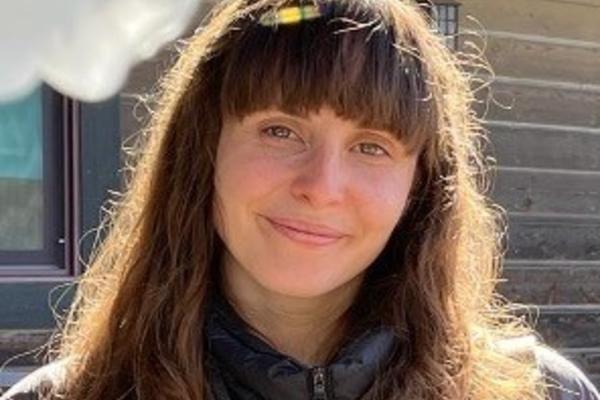#MakingHistory: Cassie Etter-Wenzel
Throughout March, we're sitting down with Reubenite women, past and present, to talk about how they're going to be #MakingHistory.
Today, we hear from Cassandra Etter-Wenzel, whose research within Oxford University's School of Geography and the Environment could pave the way for a fair, equitable, and affordable net zero energy transition.
We can’t leave people behind in the clean energy transition
My name is Cassie Etter-Wenzel, and I’m in my second year of studying for a DPhil in Geography and Environment, focusing on the intersection of the clean energy transition and low-income households. I’m mostly interested in how we can make sure that we carry out the net zero energy transition in a way that’s fair, equitable, and affordable.
I’ve spent the last ten years working on energy policy in organisations like the International Energy Agency, the World Resources Institute, and the U.S. Department of Energy during the Obama Administration.
I’ve worked on everything from deploying clean energy technologies to thinking about how we finance these things, plus all of the nitty-gritty areas in between.
Think about who we’re helping
A few years ago, the global community got really interested in the idea of net zero. ‘How do we hit net zero?’ ‘How do we do it in the timespan that we have?’ But there was a little bit less of a focus on ‘How do we make sure that we’re not leaving anyone behind when we do it?’
If you have a transition, but it’s one that continues to perpetuate inequalities or even worsen them, it’s not much of a transition. We always need to think about who we’re helping, but you can only answer some of these questions through policy analysis. We need to consider:
- How we design and think about policies
- How we can effectively target and ensure that the policies that we’re designing are benefitting everyone, not just a small segment of society.
Otherwise, we’re going quickly to the detriment of some who actually really need assistance.
My journey to Oxford
Deciding to do a DPhil took many years. There’s a huge time commitment; you have to ask yourself: is there a topic that I love so much, and that I care about so deeply?
I also wanted to find a university and a group of people who could help mentor, shape and guide me. One that really understood the complexity behind the issues, because it’s not just caring about the climate. It’s also caring about the people and being really people-centred in our approaches.
While completing my MSc at The London School of Economics and Political Science (LSE), I met some people in this field whose perspectives I really valued. And, after a few years, I knew that I was passionate enough. There aren’t enough people working in this space, particularly at the policy level, and there’s more fundamental research that needs to be done.
I knew I could make a difference in this space. I also reflected on who could best help me at this intersection between the social and economic sides, and I decided that it was a couple of the people here at Oxford, so I reached out to them.
How it’s going
So far, my course is very challenging, but great. It’s a great community and my advisors have been absolutely wonderful. They’re helping me both to be more academically rigorous in my research and to think about how I can disseminate my work.
I’m learning how to engage with the communities I want my research to impact, such as policymakers. One of my advisors recently had me attend a conference that brought together people working on energy affordability and fairness in the energy transition, both in academia and outside it.
How I’m #MakingHistory
I’m making history by highlighting that we need to do more in the clean energy space, and that an energy transition needs to be socially inclusive. It needs to ensure that we don’t leave people behind.
The women who came before me
But, when pondering more about what it means to be a woman in this space, I also think that it’s very important to highlight all of the women who helped me along the way. I just wouldn’t be here doing this without one specific female professor during my undergrad. Her focus was Women’s and Gender History and she was just so passionate about her topic, and this led me to add it as my second major.
Her confidence and ability to help me succeed ended up helping me to my next stage, which was working for the government. There, for the first time, I saw a woman who was really in charge thinking about what mentorship means. She created an entire programme at the Department of Energy and really focused on how to foster future female leaders.
It’s the importance of these mentorship opportunities along the way, both within academia and outside of it.





